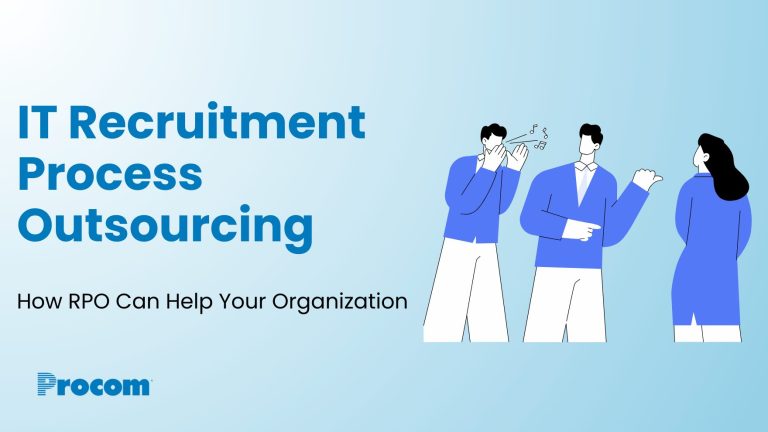Diversity, equity, and inclusion (DEI) initiatives are more important to job seekers these days, and companies need to prioritize DEI efforts if they hope to recruit and retain top talent.
According to GlassDoor’s most recent Diversity & Inclusion Survey, approximately 76% of workers and job seekers believe that the diversity of a company’s workforce is crucial when evaluating job openings and potential employers.
Recruiting through a DEI lens forces a company to rethink its recruitment tactics. Hiring managers and HR professionals need to understand why DEI is important and thoughtfully learn the steps to a successful strategy.
A successful DEI strategy includes:
- Identifying gaps in workforce diversity;
- The development of a recruitment plan to address these gaps;
- Establishing and tracking metrics to measure progress and inform future DEI efforts.
The general benefits of DEI
The benefits of maintaining a diverse, equitable, and inclusive workforce go beyond the company and its people. Here are some benefits of hiring where DEI is a critical variable in the equation:
DEI Appeals to Workers, Job Seekers and Clients
As the world’s population becomes more diverse, diversity in the workplace is a testament to cultural representation and is seen as a positive criterion by a company’s current employees, job seekers, and business partners.
As the aforementioned GlassDoor survey indicates, diversity is essential for most workers and job seekers today, but it is especially important for underrepresented groups. About 80% of African American and Hispanic respondents and 79% of LGBTQ respondents said that the diversity of a company’s workforce was a critical criterion in evaluating job openings and potential employers.
A diverse workforce also signals to customers and business partners that a company is committed to DEI. As noted in an article on DEI, published in Forbes in December 2021, companies that don’t incorporate DEI into their business and recruitment strategies lose talent and throw their money down the drain.
DEI Promotes Talent Security and Retention
Expanding diversity and inclusion in your workforce can improve the sense of emotional, mental, and physical safety of current employees who identify with underrepresented groups.
DEI can also have a direct impact on attrition and retention. According to a June 2022 survey cited by HR Dive, employees are likely to leave a company if they witness exclusionary behaviors in the workplace or if they believe the company is not committed to DEI.
The flip side of this is that workers – especially younger workers – view diversity, equity and inclusion favourably. When workers are otherwise satisfied with their jobs, DEI can be a decisive factor in retention.
DEI drives new perspectives and innovation
Effective DEI efforts can broaden opportunities, improve productivity, and drive innovation.
According to a 2018 report on executive diversity at business consulting firm BCG, companies with above-average diversity in their leadership ranks reported higher revenue from innovation than companies with below-average leadership diversity.
Assessing DEI through internal surveys
A constructive way to establish and monitor DEI is to conduct anonymous and voluntary surveys of current employees. Such surveys can provide a holistic view of a company’s current situation and help assess progress at the pace of DEI efforts. They also engage employees and give them a voice on diversity, equity and inclusion.
Gartner Research recommends focusing internal surveys on seven DEI factors:
- Fair treatment: Do workers feel recognized and rewarded fairly?
- Integration of differences: Are differing opinions valued and respected?
- Fairness in decision-making: Are all ideas and suggestions considered equally?
- Psychological safety: Do workers feel safe and can they express their honest feelings freely?
- Trust: Does the company communicate openly and honestly with all of its workers?
- Belonging: Do workers feel that the company cares about them?
- Diversity in management: Is the composition of management as diverse as the overall workforce?
Depending on local regulations, companies may also interview candidates who apply for job postings. This allows them to better determine whether their DEI recruitment plans are effective.
Integrating DEI into the hiring process
Companies need to make a conscious effort to have their DEI efforts reflected in the entire recruitment process. The following steps ensure that the company’s DEI priorities are evident throughout the recruitment cycle:
Create a diverse hiring committee
Appoint a diverse search committee whose members are connected to the position in question. Whenever possible, include a member who represents each candidate’s background.
Be transparent
Present as much detail as possible about each step of the hiring process. This way, candidates will see clearly and know that all candidates will be treated fairly.
Be structured
Decide in advance what questions to ask all candidates to avoid unconscious bias. Establish objective parameters for evaluating candidates.
Draw up a neutral balance sheet
Before you recap an interview and discuss a candidate, review the job description, required skills, and any other relevant criteria. Objectivity will thus be ensured.
Communicate DEI policies openly
While it is essential for companies to adopt DEI policies, it may be equally imperative to disseminate them.
Companies need to make their DEI strategies available to employees, job seekers, customers, and business partners. They need to report their diversity data and highlight their DEI trends and improvements.
DEI policies should also be included in job descriptions. If companies do not receive diverse candidates for open positions or if a disproportionate number of candidates from underrepresented groups drop out of the recruitment process, those involved in the hiring should evaluate the available data and other factors to find out why.
Achieving DEI goals can lead to overcoming unconscious biases. Unconscious bias is an undeliberate, but discriminatory, mental process that leads some people to behave in ways that reinforce stereotypes about age, ethnicity, gender, physical ability, race, and sexual orientation.
When DEI issues arise during recruitment, it may be a good idea to consider unconscious bias training for hiring managers and internal recruiters. Quality training programs can help people understand their biases and change their behaviors.





